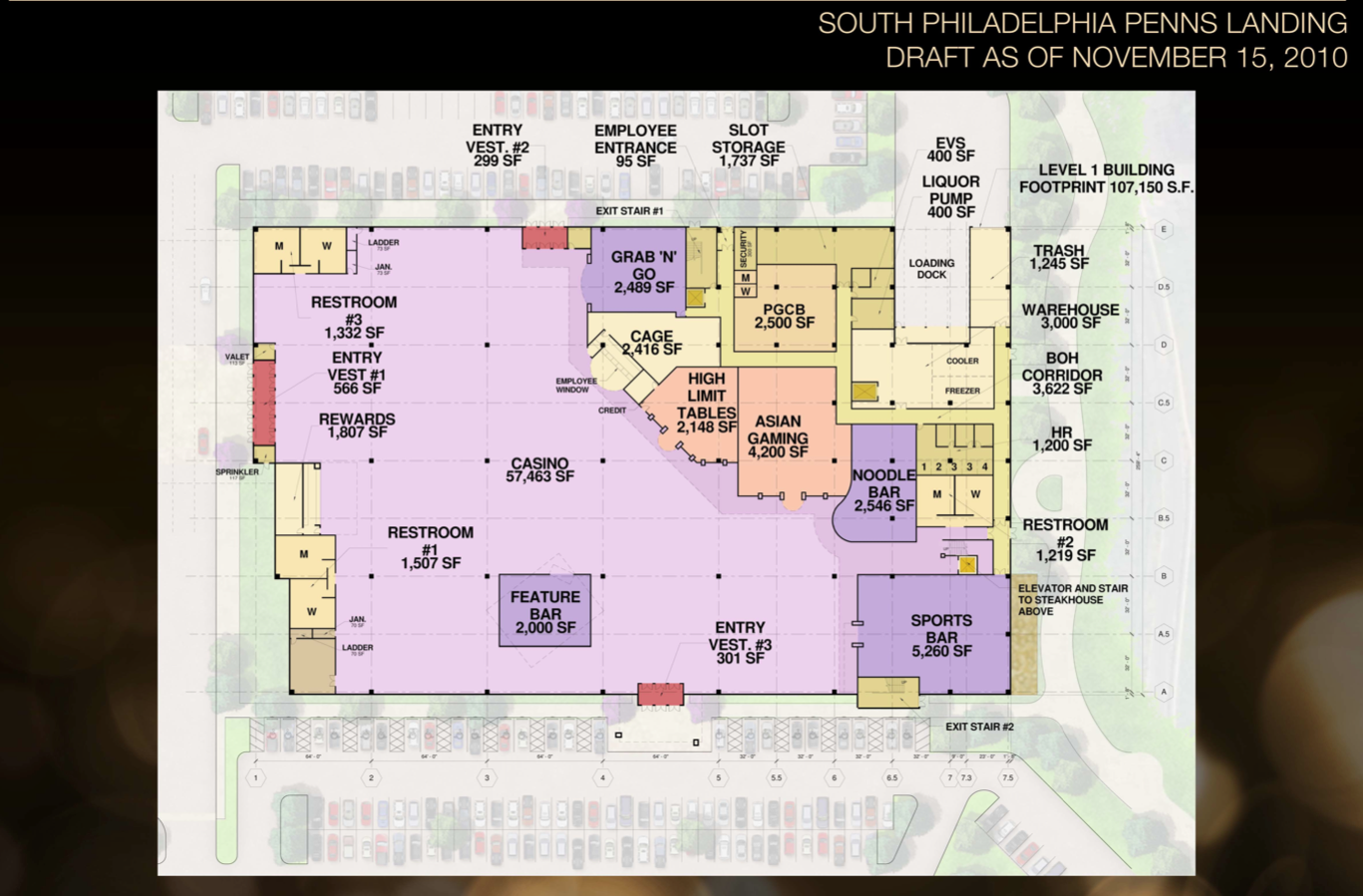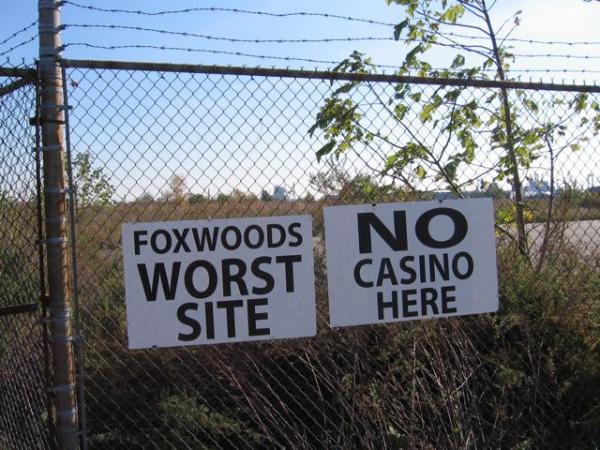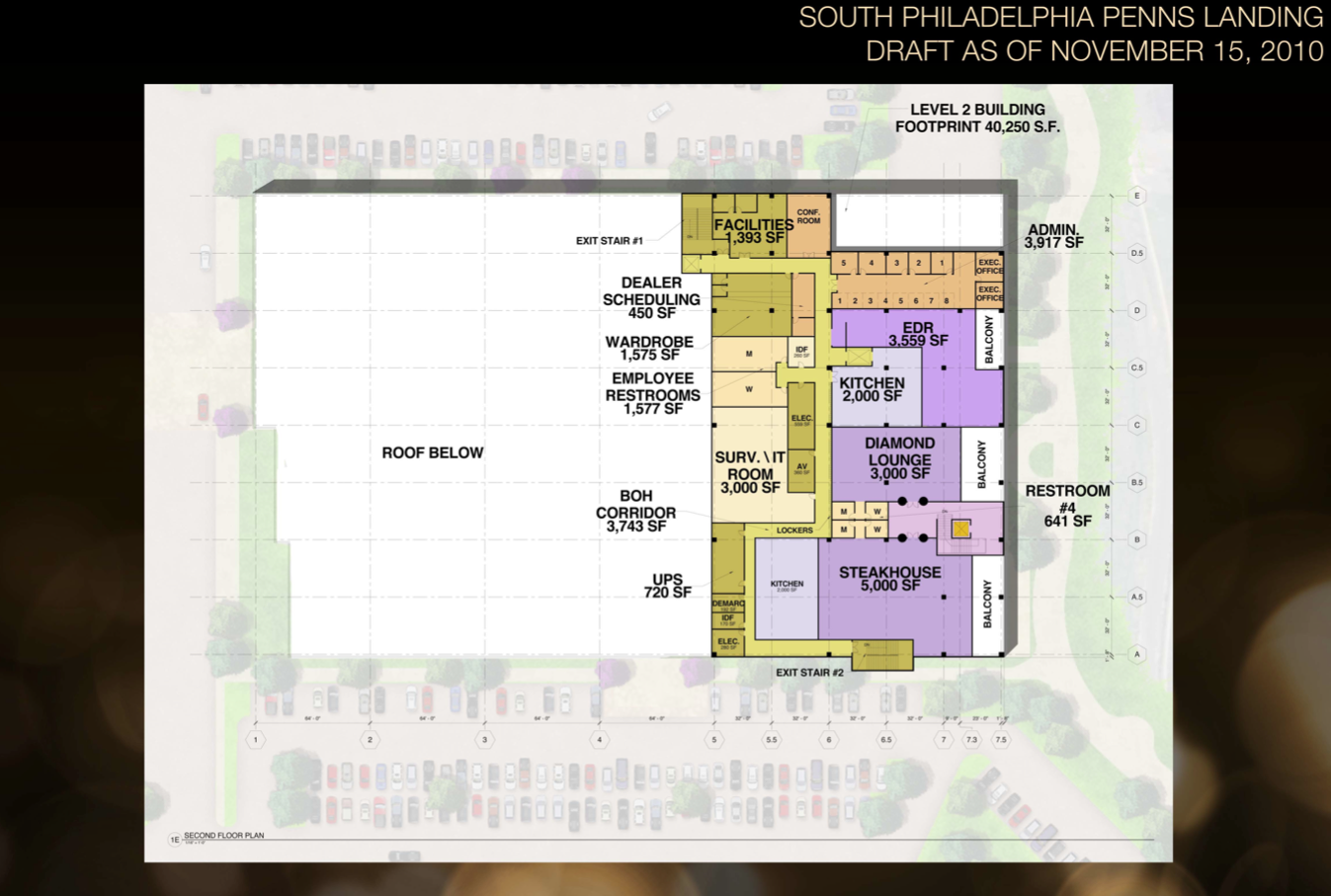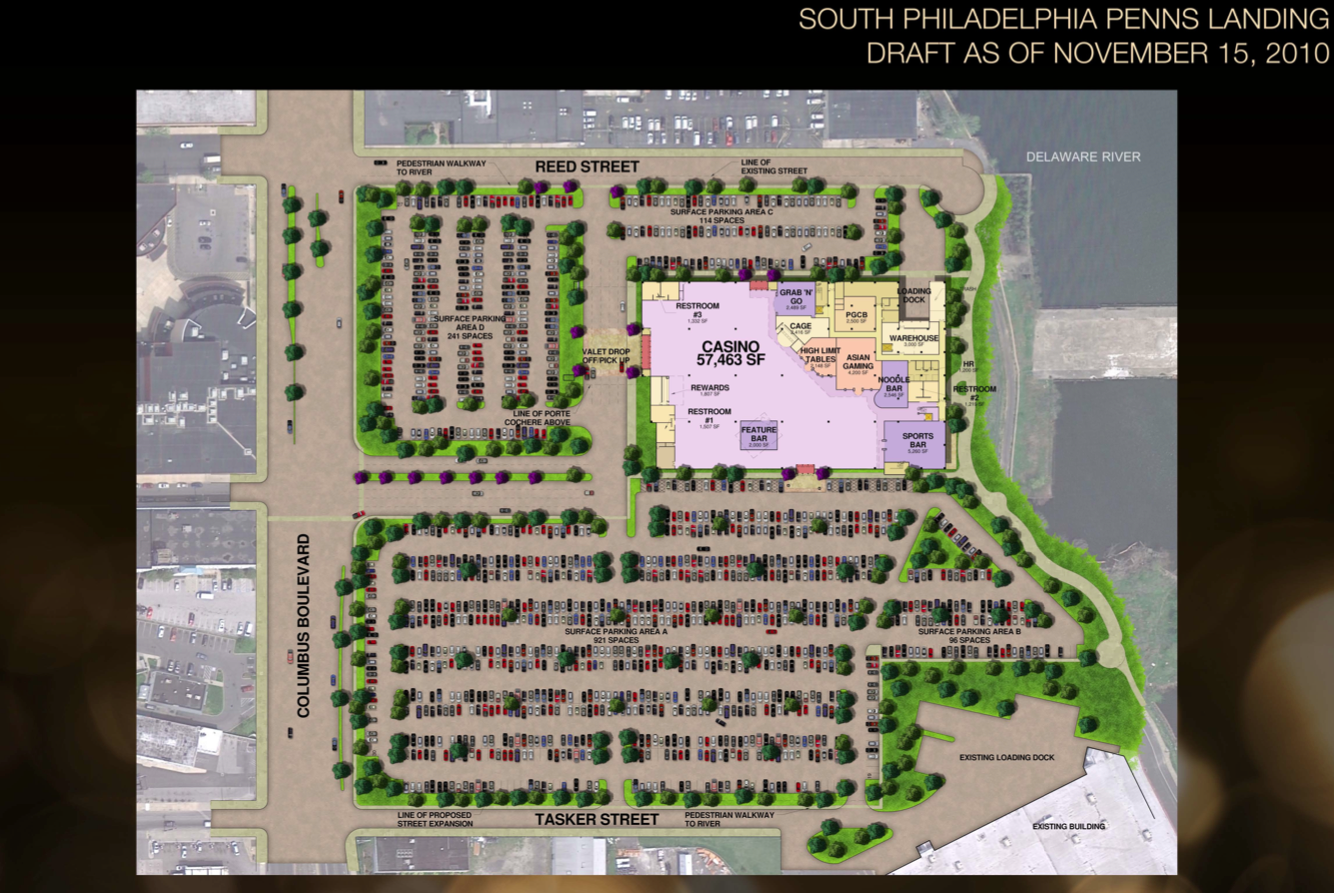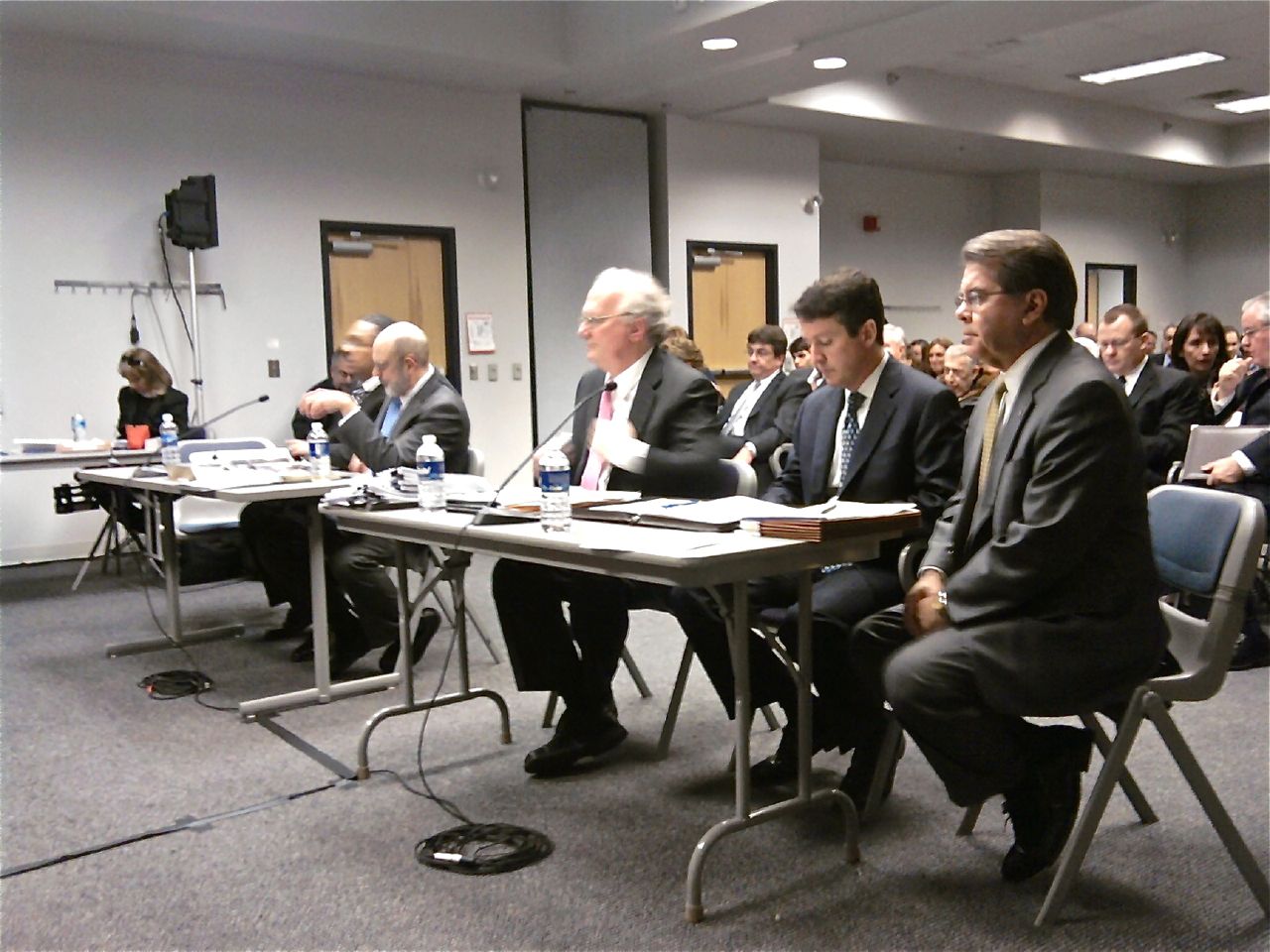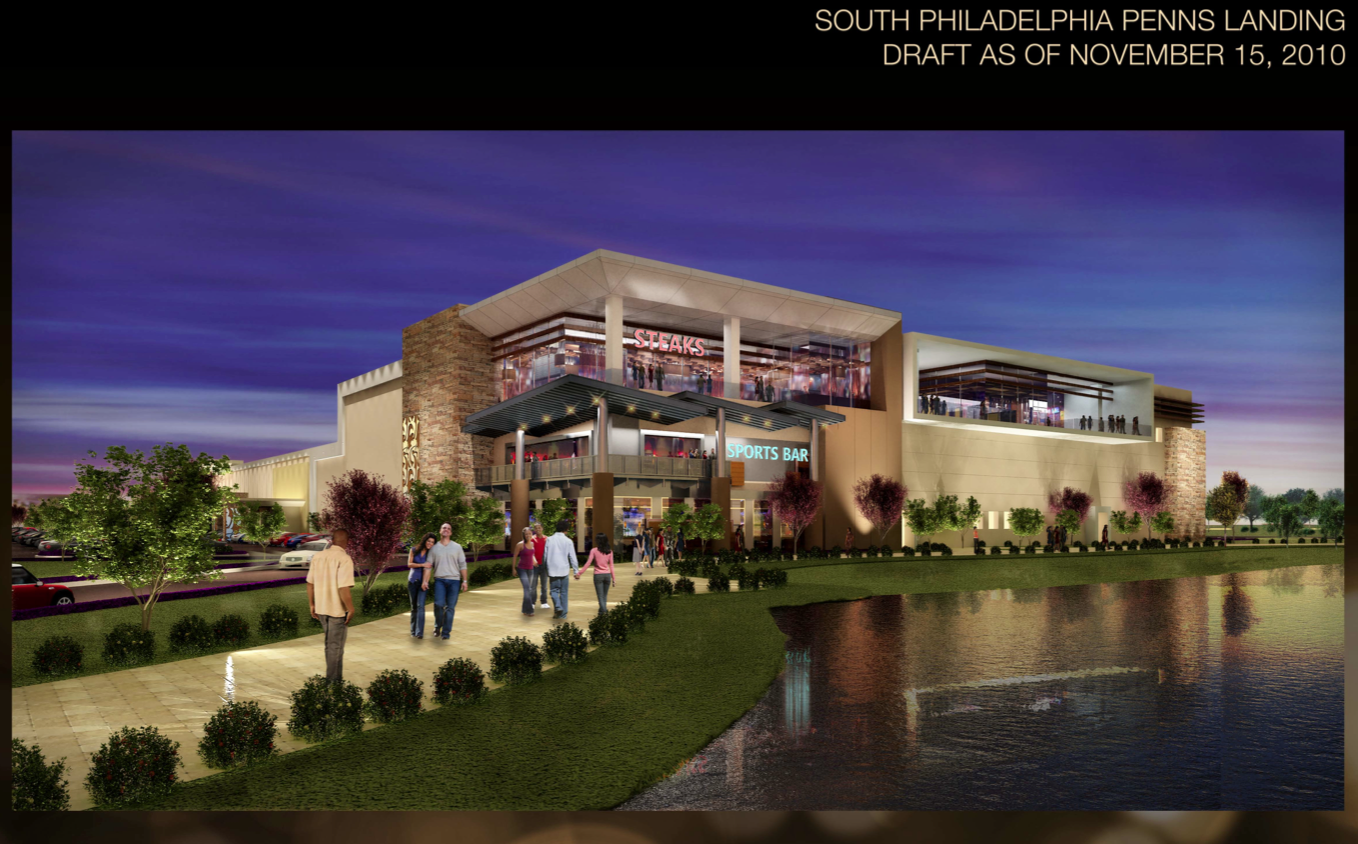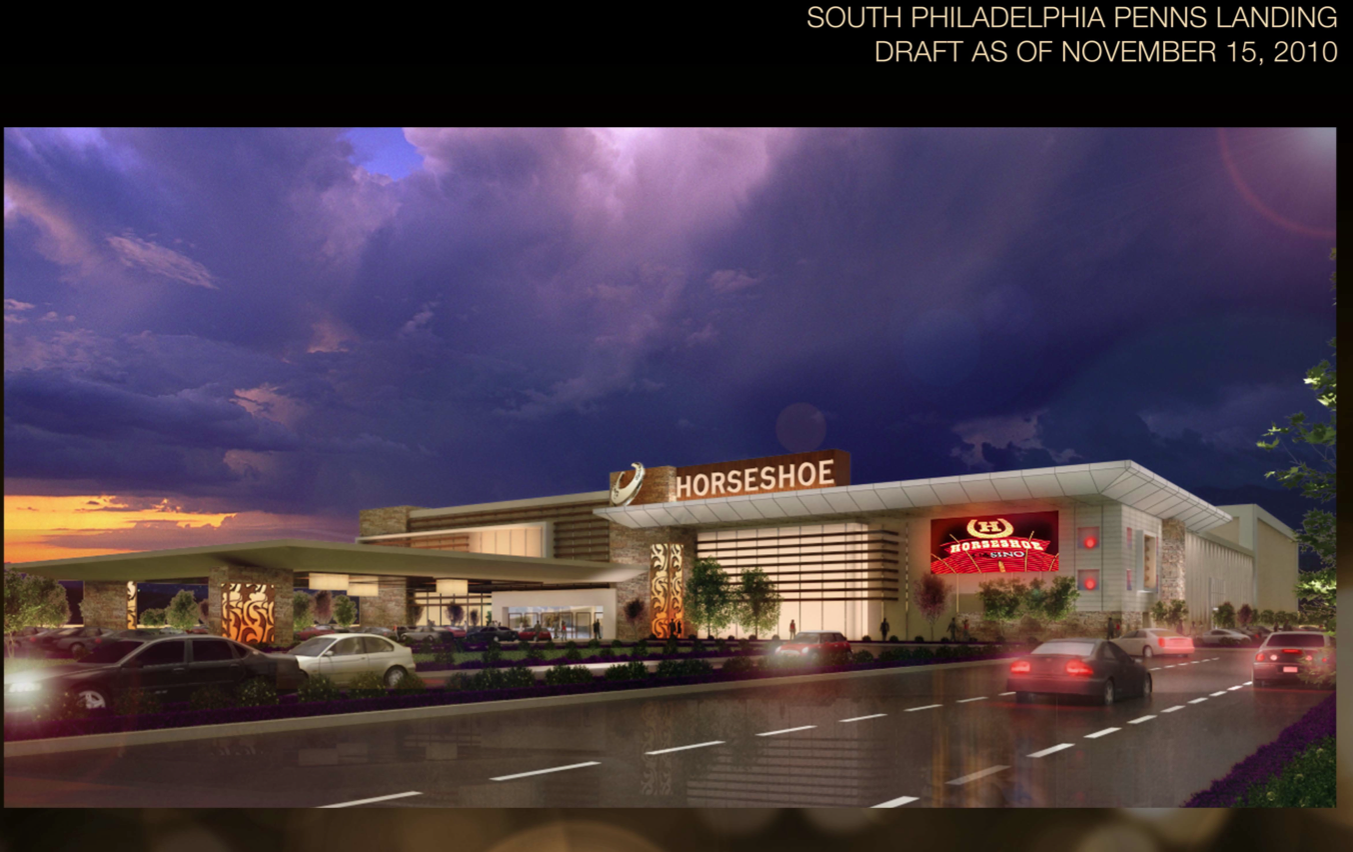Foxwoods and Harrah’s told to file crucial documents by Dec. 10
Philadelphia Entertainment and Development Partners, L.P. needs help to get its casino open, and while it has announced a deal with Harrah’s, the Foxwoods legal team did not produce change of ownership documents detailing financial and partnership arrangements when it went before the Pennsylvania Gaming Control Board Thursday.
The lack of paperwork triggered a motion by board member Gary Sojka to approve the board’s Office of Enforcement Counsel’s petition to revoke the casino concern’s license. But the board instead approved a second motion from board member Kenneth McCabe, tabling Sojka’s motion until the PGCB meets on Dec. 16, and giving Foxwoods and Harrah’s until Dec. 10 to file documents finalizing their partnership and detailing the financing.
As Chief Enforcement Counsel Cyrus Pitre described it after the meeting: “People and money.” Pitre said these documents were the heart of any plan that would preserve the license, and told the board it was the minimum he needed to feel confident about the viability of the project.
Earlier in Thursday’s proceedings, Foxwoods attorney Fred Jacoby and Harrah’s attorney Bill Downey urged the board to give Foxwoods more time to file finalized financial agreements, change of ownership, change of design and other documents related to their planned partnership.
They had hoped to have those things filed by today. “Sorry to say we can’t,” Jacoby said. “We need more time to get to the finish line,” Downey said.
“We ask you to recognize our efforts, albiet later than you would have liked to see them,” Jacoby told the board. “We ask you to give us that time. We are almost there.”
Pitre said that the Office of Enforcement Counsel was standing behind what it said in its petition: In short, Foxwoods has been given enough time already, and has failed to deliver.
The casino attorneys told the board that a second Philadelphia casino would open much more quickly in the hands of their clients than if the board revokes their license, goes through the appeals process and selects another applicant.
Pitre said it would not happen quickly with the current license holder, either. To move forward, in addition to the key documents Foxwoods and Harrah’s must turn over to the board by Dec. 10, they must provide notice of change of control to the Bureau of Licensing and file all license applications. The casino interest must also, he said, file a petition for change of ownership and control, for approval to modify the building from the plans the board originally approved, for approval of fiancing and for an extension of time to open. Before the board can approve a change to the physical building, it must hold a public hearing in Philadelphia, Pitre said. Going through a similar process with Rivers Casino in Pittsburgh took about five months, he said.
Board Member Jeffrey Coy told the PEDP team that their requests for more time and promises that things were almost settled was like “deja vu all over again” and that he is “concerned about further delay. This almost seems like we’re delaying the inevitable.” But, he said, he was intrigued by the drawings. He asked how a Harrah’s casino in Philadelphia would impact its bottom line in Chester. Downey said the second property would enhance, rather than canibalize, the first.
Downey told Coy he believed if the PEDP/Harrah’s team is allowed to move forward, it could have a casino operating in 20 to 22 months – by the third quarter of 2012.
Coy is one of the three board members who were on the board when PEDP got its license. He told the casino attorneys that what made the proposal stand out from others was the charitable component – the current ownership structure includes several charities that are to share in casino profits. Coy advised that if PEDP and Harrah’s get to move forward with the license, they should think about how to get money rolling to the charities before the casino even opens, and should consider being able to talk about that at their next board appearance.
The latest drawings call for an interim casino to be built first. Sojka asked how long it would take before a casino that looked like the one the board approved when it awarded the license would exist. Downey told him there was no start date for that second phase – it depended on revenue from the first phase and the financial markets – but it would take about another two years once construction started.
Board member Kenneth Trujillo said that Jacoby’s comment that PEDP and Harrah’s had reached substantial agreement on how the new partnership would work, and that things just needed to be “papered,” suggested to him that everything major has been hashed out. He asked Downey if that was the case.
“We have issues that remain open,” Downey said. When the board asked about this comment later, he said he did not mean to imply that there was anything that would not soon be resolved. It was just that some issues – like taxes – were more complicated than originally anticipated.
Trujillo said he understands complicated financial agreements, but, “Franklin, the financial bailout took much less time than this has taken.”
After the meeting, Jacoby said the team was “relieved and pleased” to be given more time. In an email later, he added that the team was also pleased with the confidence the board showed in Harrah’s. As part of his motion that gave the casino more time, McCabe sited the reputations of Harrah’s and attorney Downey as reasons for granting more time. That “confirms that PEDP has chosen the right partner to develop and operate the casino,” Jacoby said in the email.
Foxwoods and Harrah’s did file site plans and renderings today (see photo slideshow), which would bring them into compliance with some orders of the board. That information included a proposed new name for the casino – The Horseshoe – and showed what critics called an emphasis on attracting Asian gamblers, given a “noodle bar” and an “Asian Gaming” section.
“At this point they are trying to profit on racism,” said Helen Gym, representing Asian-Americans United. “Clearly these games are targeted at Asians.”
Harrah’s has noodle bars and Asian gaming sections at its other properties. Michael Bowman, a twenty-year veteran of the gaming and hospitality industries, who is now the top executive at Rivers Casino in Pittsburgh, spoke to Casino Connection about the strategy when he was with Harrah’s.
“It’s extremely important to have a noodle bar … one of the most important components in the market depending on your particular property’s marketing strategy. If you have a property where there is a heavy Asian gaming customer base, then you have to have one. And it has to be efficient, refreshing and exciting. The commitment needs to be tremendous.”
Foxwoods has also paid a fine they were ordered to pay on time.
In December, the board will be making a decision based on whether the documents are delivered on time and oral arguments it heard last month from attorneys representing Foxwoods and the board’s enforcement arm. Both sides asked the board to decide through summary judgement – in other words, based on the information they already have. Foxwoods argued the evidence shows they should keep their license; the board’s Office of Enforcement Counsel argued it should be revoked.
Philadelphia City Councilman Frank DiCicco, who has long opposed the Foxwoods location, sent a letter to Board Chairman Gregory Fajt earlier this week urging the board to pull the license. DiCicco represents the first district, where Foxwoods would be located. His letter states that Foxwoods should lose its license for failure to open and for failing to meet board conditions, and also that revoking and rebidding the license “will allow the City of Philadelphia and its residents to have some input into the location and design of a second facility.” A better design at a more suitable location could be completed “quickly and comfortably,” DiCicco wrote.
The day before October’s oral arguments, Foxwoods announced that it had found a new partner in Harrah’s, and that with Harrah’s money and casino-running expertise on board, Foxwoods would be able to open by December 2012 – a deadline that would require the gaming board to grant another extension.
Thursday, Chief Enforcement Counsel Pitre told the board that he has had plans with Harrah’s described to him, but no official documents seeking either a change in ownership to bring Harrah’s onboard, nor a petition for a deadline extension have been filed.
After the October proceeding, Foxwoods attorney Stephen A. Cozen told reporters that his client would be filing those documents before today’s hearing.
Casino-Free Philadelphia members who traveled to the hearing held signs saying the license should be revoked. If the board needs a formal hearing, it should be held in Philadelphia, they say. “The people of Philadelphia are the ones who have to deal with the damage caused by predatory gambling,” said Dan Hajdo, spokesperson for Casino-Free Philadelphia, in a printed statement. “We’re the ones that have to pay for the increased crime, the increased costs of policing, and the costs of increased gambling addiction. We should have a say in this process.”
After Thursday’s proceeding, Hajdo said he was disappointed, but not surprised. Hajdo expressed doubt that Foxwoods could produce the documents – described as being several feet of paper – by Dec. 10. But he is not convinced the board would revoke the license, even if the documents aren’t forthcoming. In a press release issued Thursday evening, Hajdo said, “This decision yet again reflects the kind of political favoritism we’ve come to expect from the PGCB over the past four years. The Gaming Board’s own lawyers have recommended revocation, yet the Board has not yet acted to revoke the license. A deadline should be a deadline, even for friends of the Governor”
Those attorneys – Pitre and Miller – told the board in April that Foxwoods license should be revoked for their failure to open on time – or even to begin construction on its casino planned for Columbus Boulevard and Reed Street in South Philadelphia – and to be out of compliance with several PGCB orders to provide a construction timeline, site plans and drawings. These items were established by the board as ways for Foxwoods to prove they were moving forward.
Since the Office of Enforcement Counsel’s April petition to revoke, Foxwoods has continued to plead for board patience. Cozen and fellow legal team member Fred Jacoby have said the casino project was delayed by forces outside the partners’ control, including political pressure, lawsuits, and a terrible economic climate. Despite that, Foxwoods attorneys have said, they were largely in compliance earlier this year, when they reached financing and partnership agreements with Las Vegas Casino mogul Steve Wynn.
Whatever those agreements with Wynn were, they didn’t stick. After showing drawings of a proposed casino to the gaming board and Philadelphia officials, Wynn withdrew. Cozen told the board last month he still didn’t know why, but the fact that Foxwoods could attract first Wynn and then Harrah’s shows that Foxwoods is a very viable project.
Cozen also argued that the board should dismiss the bureau of investigations and enforcement’s complaint calling for license revocation because the gaming law that applies is unconstitutional.
Foxwoods must know the legal standards by which they are being judged, he said. But the BIE complaint uses the term “maintenance of financial fitness and suitability,” – a term that has not been defined.
The arguments presented by Deputy Enforcement Counsel Dale Miller and Pitre were shorter and less complex, largely revolving around the facts that in the four years since it got its license, Foxwoods had no casino operating, had not started construction on a casino, and was currently out of compliance with board orders.
Regarding the constitutionality question, Miller pointed out that Foxwoods never objected to the ‘suitability’ language when it got the license, nor at any point since, until their license was threatened.
That and the “Steve Wynn pulled out and it isn’t our fault. We tried,” stuff are “not defenses, but pleas for sympathy so that (the board) will lessen sanctions,” Miller said.
Several board members questioned whether the financial fitness and suitability requirements that applies to applicants wouldn’t still apply to licensees. Cozen argued that it would not, that applicants bear a higher level of proof. Miller and Pitre said that Foxwoods signed documents when they got the license promising to continue to maintain suitability.
Cozen also argued that the board couldn’t revoke its license when it didn’t revoke that of Pittsburgh’s Rivers casino when it was having financial difficulty.
Pitre said the Foxwoods and Rivers situations were totally different. Rivers had a pending petition for change of ownership and control, he said, and that has never happened with Foxwoods, with either Wynn or Harrah’s.
Reach the reporter at kgates@planphilly.com
WHYY is your source for fact-based, in-depth journalism and information. As a nonprofit organization, we rely on financial support from readers like you. Please give today.



